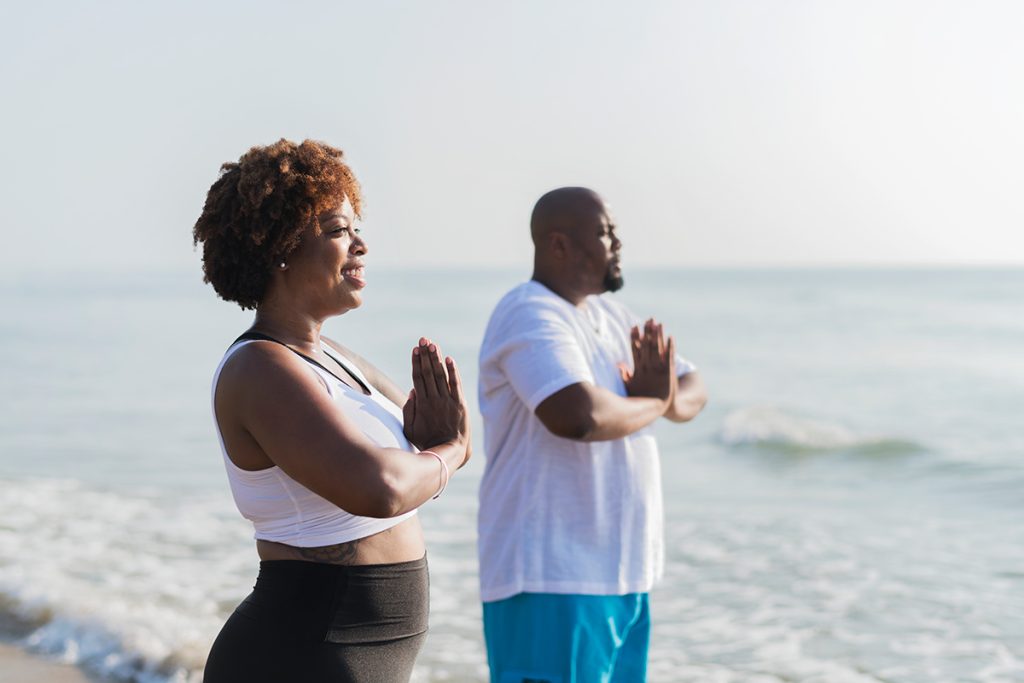What is wholistic wellness? While both words hold different meanings for different people, wholistic wellness is generally perceived as the state of being well as a whole, in every aspect of life. The word wholistic is generally defined as the belief that everything is interconnected and contributes to the whole. In terms of medicine, it is defined as treating every aspect of an illness, not just the main issue caused by said illness. That being the case, one would have to address and analyze every aspect of life to truly achieve good health.

Aspects of Life
There are several factors encompassing all human beings on a daily basis, whether we are aware of it or not, that I have found in my experience as a wellness coach to affect us, either positively or negatively.
We as humans are regularly exposed to several physical, nutritional, social, mental, emotional, and spiritual stimuli. If not within one’s scope of awareness, any one of these aspects could lead to less than desirable outcomes. For example, a client who had an argument with their domestic partner showed up to a session unhappy because, as a result of the argument, she gave into her craving and binged on junk food the night prior, thus wrecking her weight goal for the week.
Therefore, in order to become wholistically fit, each one of these life aspects must be analyzed and carefully monitored in order to promote a completely healthy lifestyle.
What This Means
Taking inventory of each of those aspects of life can be a daunting and difficult task, as one’s wellness in each would differ for each individual based on their likes, dislikes, quirks, daily routine, etc.
For instance, an individual with a sedentary job will most likely need to exercise more to get their desired results than an individual with an active job. Also, one’s physical wellness doesn’t necessarily mean being in the peak of physical condition and performance. For example, an athlete comprised of 18% body fat with an abundance of lean muscle may be more concerned with physical fitness, performance, and endurance than someone who isn’t an athlete but wishes to lose 25 lbs of excess body fat.
As far as nutrition goes, it is much easier and often quicker to grab some food at the nearest drive thru, especially for the working single mom of three. Taking time to make something healthy means more time in the kitchen and being late getting the kids to daycare.
Socialization may mean everything for the high school teenager who doesn’t make friends easily, but may be taken for granted by the classmates who have never experienced that. Mental and emotional health can be affected by all of the previous three aspects listed.
And as far as spirituality goes, that will be different for everyone. For some, it holds no significance, but for others, it is the most important thing to them. Some may not believe in a God, but believe that a higher power exists. They may not pray, but may still hold some stock in whatever higher power they believe. Others may not believe in a God or a higher power at all, but may have the mentality of wanting or trying to be their own God in some way. Those are just some examples of differences within individuals.

Being Our Best Selves
It has been my belief that there is not enough emphasis on wholistic health and wellness. What happens when one of these aspects creates a stressor that negatively affects them? If that stressor isn’t addressed and remedied, it may affect other aspects of their life. How can a person be 100% healthy if they do not focus on 100% of themselves? Not to say that one should put themselves before others, but if one isn’t emotionally healthy, they cannot be mentally healthy without first addressing their emotional health. Diet and exercise alone will not suffice.
Without reviewing ourselves as a whole, how can we operate in optimal condition? In conclusion, in order for we as human beings to be at our most prime selves, it is imperative that we make wholistic health and wellness a priority.
Tambryn Crimson-Dahn is a certified personal trainer, nutritionist, and fitness and wellness coach with 4 years of experience. After having worked in the gym industry, she now owns and operates her own company, Crimson Wholistic Fitness. She specializes in depression, anxiety, and overall mental health and wellness.

